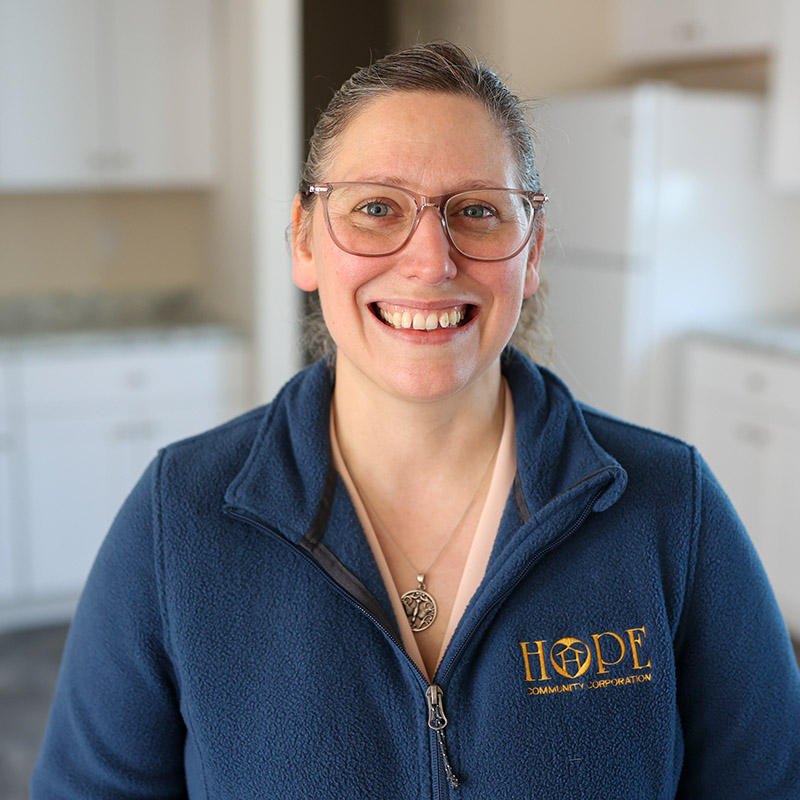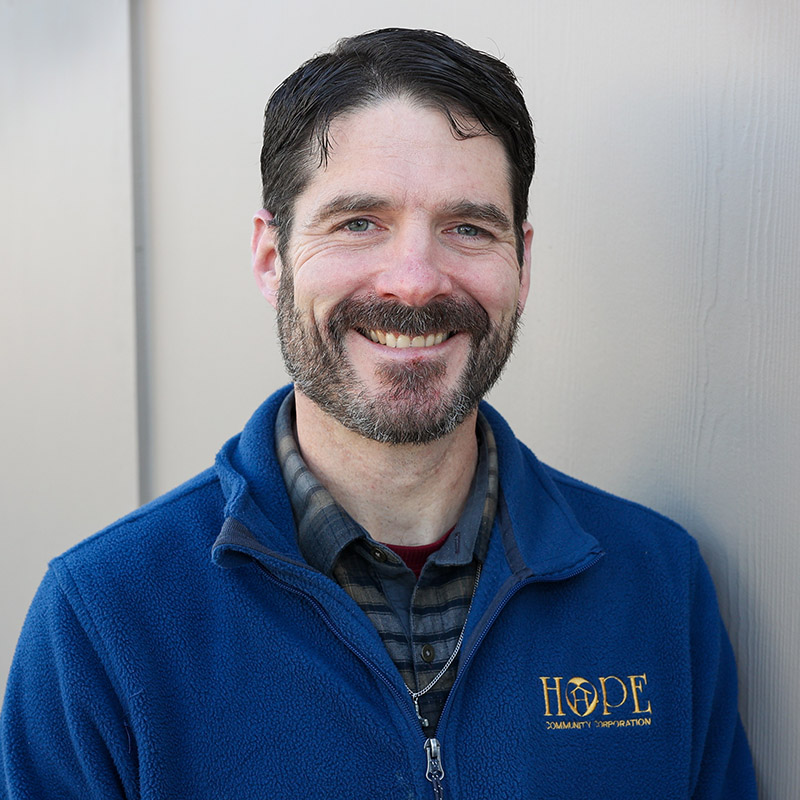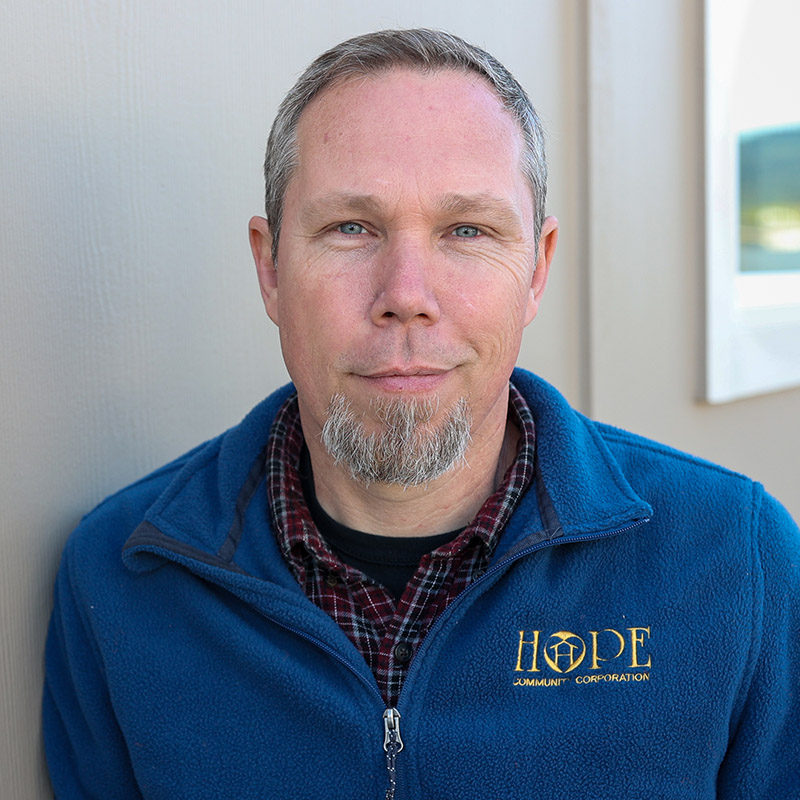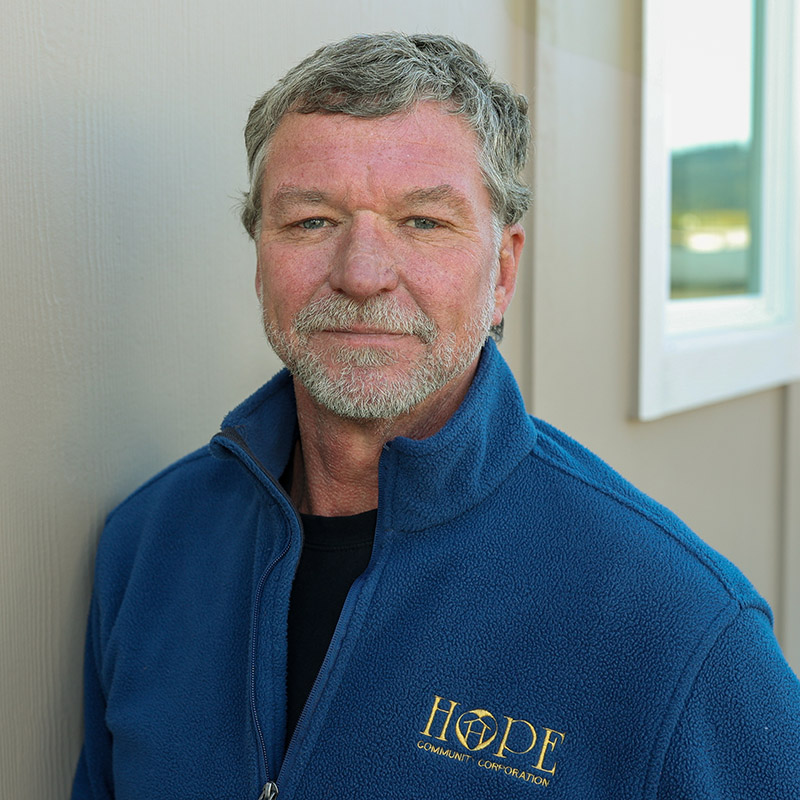ABOUT US
Bringing HOPE One Home At A Time
“We build high-quality, affordable manufactured housing solutions for natural disaster victims, as well as individuals and families pursuing home ownership.”
A newly formed nonprofit, HOPE (Housing Options Production Enterprise) Community Corporation, has spent the last two years bringing a bustling manufactured-home production line to life in an old American Steel facility, beginning to sell its first homes in 2024. Made possible by $15 million in funding from the State of Oregon in 2022, this innovative new enterprise intends to help remedy a severe and growing housing crisis and shortage for low-income Oregonians.
This assistance also includes thousands whose homes burned in the calamitous 2020 wildfire season. That statewide natural disaster created even greater demand for the region’s commercial manufactured-housing industry. The state was already ill-equipped to serve low-income Oregonians who were unable to afford or even access replacements for aging modular homes past their useful life.
Based in Eugene, Oregon, we proudly partner with St. Vincent de Paul of Lane County to expand our reach and impact. SVdP and HOPE acquired 888 Garfield in May 2022 with financing provided by the Oregon Community Foundation. The building underwent extensive renovations, including floor repairs, a systems overhaul, and the installation of mezzanines and work platforms. Additional upgrades included new overhead cranes, the construction of offices and training spaces, and the addition of a chassis shop. This was all in service of a long-term solution to the housing crisis in our communities.
State Rep. Pam Marsh (D-Ashland), who pushed through the state’s funding for this new enterprise, also introduced House Bill 4064, intended to expedite the siting of manufactured homes across the state. Her district lost some 2,500 housing units, including 1,500 manufactured homes and RVs, during 2020’s Almeda Fire. Few of those homes have been replaced yet — largely because of commercial manufacturers’ capacity limitations and rising costs, both of which this new nonprofit production effort is designed to address as part of the broader fight against Oregon’s housing crisis.
“We build high-quality, affordable manufactured housing solutions for natural disaster victims, as well as individuals and families pursuing home ownership.”
Board of Directors

Bethany Cartledge
Bethany is the Executive Director of St Vincent de Paul Lane County (SVDP). Bethany enjoys working for such a dynamic organization, creating authentic and sustainable changes with and for individuals and the community.

Bill Van Vliet
Bill is the Executive Director for Network for Oregon Affordable Housing (NOAH). Bill has 25 years of experience in housing finance with a strong credit and management background. He has worked in both the private and public finance sectors. He joined NOAH as a Loan Officer in 1998 and was appointed Executive Director in 2000. He also serves as an expert and leader in housing policy.

Skylar Jones
Skylar is a Senior Vice President & Risk Advisor at IMA Financial Group. Skylar graduated in 2011 with a degree in Business Administration from the University of Oregon. Today, Skylar enjoys negotiating with insurance carriers to deliver superior employee benefit programs to his clients, many of which are local non-profits here in Lane County.

Wallace Glausi
Wallace is an attorney and a business and real estate finance expert. He has led or been co-lead counsel on more than 150 real estate, leasing, lending, and development (including low-income housing) transactions, financings, and acquisitions, and has helped finance and structure numerous energy (including power generation, oil & gas, clean coal, natural gas, and pipelines/midstream assets), clean technology and renewable energy (biogas, wind, solar, waste heat recovery) deals.

Terry McDonald
Terry is the Emeritus Director of St Vincent de Paul Lane County (SVDP). For over thirty years, Terry has enjoyed the privilege to lead and develop programs for organizations committed to serving people in need by capitalizing on waste-based enterprises like retail thrift, mattress recycling, and e-commerce. He looks forward to connecting with other non-profit and recycling leaders to divert waste, create sustainable jobs, and build stronger communities.

Gary Meili
Gary has been working for Meili for 35 years. He graduated from Oregon State University with a degree in Construction Engineering Management in 1988. Now with over 30 years of management experience of public and private CM/GC projects, he has a proven track record in assisting private and public developers in the CFC funding cycle competition.

Bruce Wood
Bruce is the Principal owner of Foundation Real Estate Development, a northwest development company with projects in Oregon, Washington, California and Nevada. Prior to starting his own development firm, Mr. Wood served as Managing Director of Real Estate Development for Opus Northwest, LLC with notable projects such as Bridgeport Village, Tanasbourne Town Center, The Columbia Gorge Corporate Center, and Southwest Center which won the SIOR office development of the year award. Mr. Wood’s real estate career also includes working/consulting for Harsch Investments, Trammell Crow Company, and from 2012-2016 managing the real estate group at the Portland Development Commission (now known as Prosper Portland).
Our Team

Brent Heller
Brent Heller has been with the HOPE project from the beginning, first as Business Development Director at St. Vincent de Paul of Lane County, where he worked for over two years, and now as HOPE’s Director of Administration. Prior to that, he was a logistics officer in the United States Army, where he served on active duty for 20 years. He also enjoys volunteering with the Eugene Mission and the McKenzie River Trust, and is active in his church. When not engaged in these pursuits, Brent can be found with his family, or perhaps on a run or a hike in the great outdoors of his native Pacific Northwest.

Shaun Woolley
Shaun Woolley is a highly skilled Superintendent with over 22 years of experience in the construction industry. With expertise in carpentry, project management, commercial construction, residential projects, and general contracting of all levels. He has successfully led and contributed to a wide range of projects, from small commercial and residential projects to large scale, multi-phase projects. Including Serenity Lane campus in Coburg, Waterford Grand Assisted Living Center in Eugene, LEAD certified Kendall Toyota dealership in Eugene, to name a few. As a Director, Shaun Woolley is responsible for the implementation and design of production systems and training, overseeing operations and quality control systems. Maintaining full HUD compliance within every home produced. His approach focuses on all employees delivering high-quality work while maintaining safety standards and promoting sustainability.

Brad Tatum
Brad Tatum’s career in construction began in his teenage years, gaining foundational experience cleaning job sites before moving on to plastering pools in Southern California. In 1998, Brad relocated to Oregon, where he further developed his skills through the Carpenter apprenticeship program. He then dedicated 13 years to a large, family-owned construction company in Eugene. A brief return to California in 2012 saw Brad take on the role of a small business owner, running his own construction company that specialized in transforming single-family homes into dream properties for renovators. Brad made his way back to Eugene, and by 2022 contributed his expertise to the renovation of the American Steel Works building for St. Vincent de Paul, a project that became a significant source of pride. With the building’s transformation into Hope Community, Brad was excited to join Hope. He currently plays an integral role in building manufactured homes and feels truly blessed to be a part of this work from the ground up.
History of Hope Community Corp - A Response to the Housing Crisis
HOPE has revitalized an old American Steel factory, turning it into a vibrant HUD-certified manufactured home facility.
This enterprise was made possible by a $15 million grant from the State of Oregon in 2022, spearheaded by Representative Pam Marsh, District 5, in response to the devastating 2020 wildfire season. HOPE is focused on tackling the critical housing crisis for lower-income residents, individuals affected by natural disasters, and workforce housing needs. As the housing landscape continues to evolve, HOPE remains committed to long-term solutions that address the housing crisis with innovation, compassion, and lasting impact.
